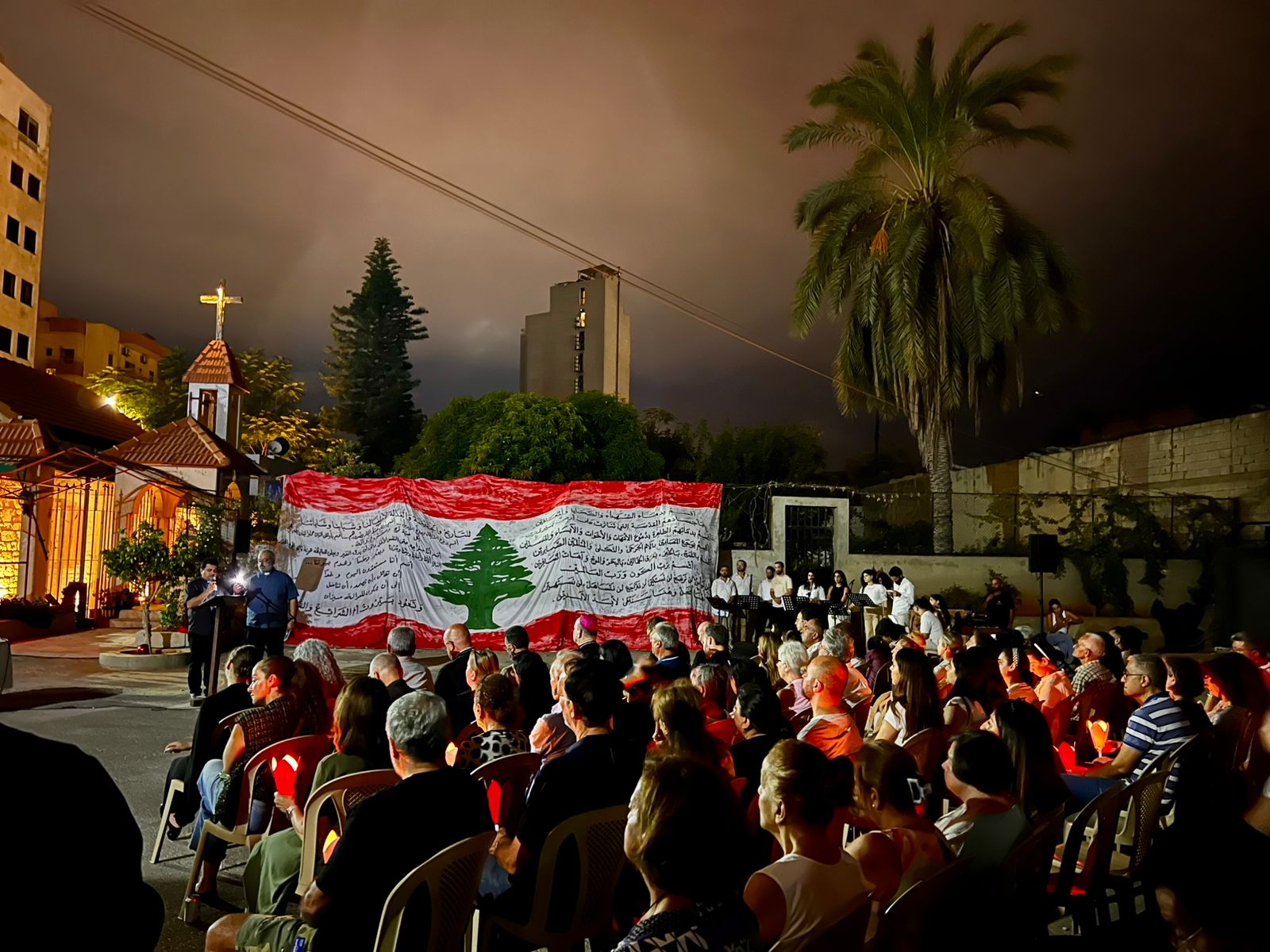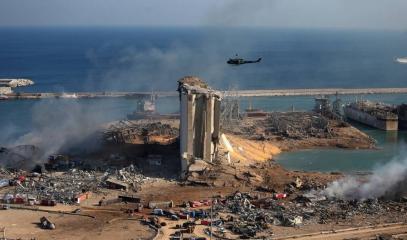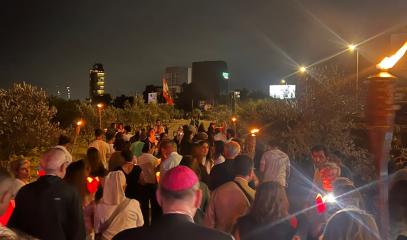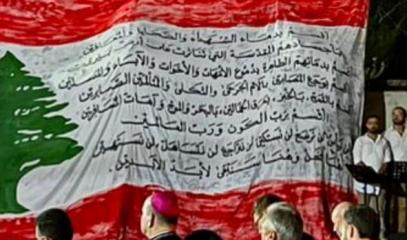Beirut: ‘political change’ brings hope for truth about the port massacre
Prime Minister Salam inaugurated a street in the capital named after the ‘victims of August 4’. The Lebanese Church has promoted a prayer vigil and blessed 253 young olive trees dedicated to the victims. In a message from the Vatican Secretary of State, Pope Leo XIV expressed his “closeness.” New calls for ‘justice’ and the emergence of a “network” of responsibility.
Beirut (AsiaNews) - With the political change that took place in January 2025 and the election of a new head of state, the fifth anniversary of the explosion at the port of Beirut was marked this year by renewed hope.
The common hope is that the mystery surrounding this tragedy will be clarified and that justice will be done to the families of the victims and those who suffered permanent injuries or devastation. In particular, one of the first objectives is to bring to light the network of complicity that allowed the entry and storage of a highly dangerous substance present since 2013 in the hangars of the capital's port.
Added to this is the actual use of the 2,750 tons of ammonium nitrate that caused the massive explosion, described as one of the most violent non-nuclear explosions since World War II. According to several analysts and experts, the substance was intended for the production of weapons.
The explosion devastated a neighborhood of Beirut famous for its elegant houses with porticoes. In a matter of hours, it killed 235 people, injured thousands, and partially or totally destroyed about 7,000 homes, leaving an indelible wound in the lives and souls of the Lebanese people, to whom Pope Francis himself had repeatedly expressed his closeness in the past.
On this occasion, Prime Minister Nawaf Salam stressed the government's commitment to pursuing the case until justice is done, inaugurating a street in the capital called “Street of the Victims of August 4.” “We will not compromise,” the prime minister assured, “neither on justice nor on the truth.”
President Joseph Aoun promised that “truth” will be done “regardless of the obstacles and regardless of the rank of those involved.” At the same time, Lebanese Culture Minister Ghassan Salamé decided to include the destroyed silos of the port in the general inventory of Lebanese historical monuments, so that they may bear witness over time to the memory of a wounded national memory.
The European Union (EU) has issued a statement saying that “ending impunity is essential for the recovery” of the country of cedars. “Lebanon deserves an independent and impartial judicial system that brings justice to victims instead of protecting the elite,” reads a statement from the US embassy in Beirut.
Persistent impunity
On the eve of August 4, religious and social leaders denounced the persistent impunity and refusal of political and judicial figures - apparently complicit in the introduction and storage of this explosive material in the port - to appear before the investigating judge.
The Lebanese Church also promoted moments of remembrance and prayer, organizing a vigil last night in the courtyard outside Notre-Dame de la Délivrance, in the Quarantaine district, in the immediate vicinity of the port, in the presence of the apostolic nuncio, Monsignor Paolo Borgia.
The ceremony was followed by a procession and the blessing of 253 young olive trees dedicated to the victims of the explosion, planted on the road leading to the port. The number 253 corresponds to the updated number of victims, some of whom died from injuries sustained several months or even years after the tragedy.
In addition, dozens of the more than 6,000 people registered in hospitals still bear the disabling marks of the damage they suffered.
During the vigil, the Holy See's ambassador read a message sent by Secretary of State Cardinal Pietro Parolin. “On the fifth anniversary of the tragic explosion in the port of Beirut, the Holy Father, Pope Leo XIV, assures you and all the Lebanese people of his spiritual closeness and communion in prayer,” the note emphasizes.
"At this time of recollection, he invites you to meditate on the attitude and words of Christ in the face of the death of his friend Lazarus. In fact, Jesus shed light on the mystery of our death. Faced with death, Jesus wept, and his tears join ours in the face of the loss and suffering of those dear to us. Thus, Christ is close to each of you,“ and in ”Christian hope“ there is the ”certainty that Christ is the God of life and that death does not and will never have the last word."
Sacred truth and justice
In addition to reading Cardinal Parolin's message, the apostolic nuncio addressed a message to the faithful and to all the Lebanese people, renewing the appeal for light to be shed on the tragedy, five years after the events.
“Obtaining truth and justice,” said the Vatican diplomat, “is a sacred right in every civilized country that respects its citizens and the law.” “Let us pray,” he added, "that the sacrifice of these victims, and of so many others, offered on the altar of incompetence and misgovernment, violence, hatred, and war, will not be in vain. We pray that it will not add hatred to hatred, violence to violence, but will bear fruit for good and open the way to hope for a better future.“
Monsignor Borgia recalled the ”very moving testimonies“ that ”we were able to hear from the parents of the victims and the doctors." “It was a beautiful moment of sharing. The sense of being together was very strong. I felt,” concluded the prelate, “that I could share the faith and be close to the parents of the victims in their pain.”
Finally, today, a Mass and two marches are planned to commemorate this tragedy, while relatives and family members are saying loudly that “actions will count, not promises.”
07/02/2019 17:28










.png)










